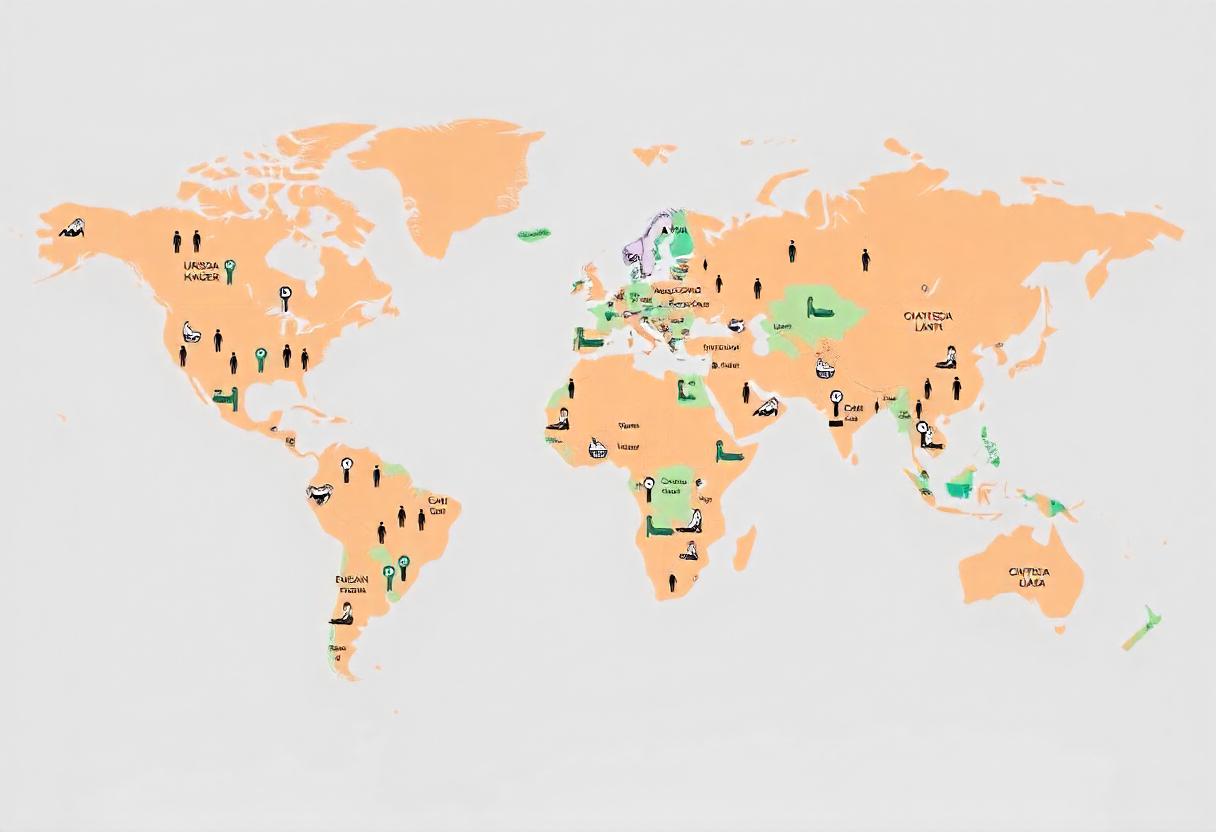
Global cooperation has become a cornerstone in addressing some of the world’s most pressing issues, from climate change and pandemics to economic inequality and conflict. As nations become increasingly interconnected through globalization, the need for collaborative approaches to tackle these challenges has never been more critical. This article delves into the importance of global cooperation, examining its benefits, the mechanisms through which it operates, and the challenges it faces.
The Importance of Global Cooperation
- Addressing Climate Change: Climate change is a quintessential example of a global problem that requires collective action. Greenhouse gas emissions, deforestation, and pollution are not confined by national borders. Successful climate mitigation and adaptation strategies demand international collaboration to set emission reduction targets, share green technologies, and provide financial support to developing countries. Agreements like the Paris Agreement illustrate how nations can come together to forge commitments aimed at limiting global warming and fostering sustainable practices.
- Managing Pandemics: The COVID-19 pandemic highlighted the critical need for global cooperation in health. Viruses spread rapidly across borders, making it essential for countries to work together in research, vaccine development, and distribution. The World Health Organization (WHO) plays a pivotal role in coordinating international efforts to monitor and respond to health crises. Collaborative initiatives such as COVAX aim to ensure equitable access to vaccines, demonstrating how global solidarity can address public health emergencies.
- Promoting Economic Development: Economic disparities between nations can be exacerbated by global challenges. International organizations like the United Nations (UN) and the International Monetary Fund (IMF) work to promote economic stability and development. By facilitating trade agreements, providing financial aid, and supporting development projects, global cooperation helps to alleviate poverty and promote economic growth in underserved regions. Collaborative efforts are crucial for creating a more equitable global economy.
- Fostering Peace and Security: Global cooperation is vital for maintaining peace and security. Conflicts often have far-reaching consequences beyond national borders, affecting regional and global stability. International peacekeeping missions, conflict resolution initiatives, and diplomatic negotiations rely on collaborative efforts to prevent and resolve conflicts. Organizations such as the United Nations Security Council play a central role in addressing threats to global peace through collective action and sanctions.
Mechanisms of Global Cooperation
- International Organizations: Institutions such as the United Nations, World Trade Organization (WTO), and World Health Organization (WHO) facilitate global cooperation by providing platforms for dialogue, setting international norms, and coordinating collective action. These organizations bring together member states to address global issues, establish agreements, and implement policies.
- Bilateral and Multilateral Agreements: Countries often enter into bilateral or multilateral agreements to address specific issues or achieve common goals. These agreements can range from trade deals and environmental accords to security pacts and humanitarian initiatives. Such agreements are essential for coordinating efforts and ensuring that participating nations adhere to shared objectives.
- Global Forums and Summits: High-level forums and summits provide opportunities for world leaders, policymakers, and stakeholders to discuss and address global challenges. Events like the G20 Summit, World Economic Forum, and climate conferences facilitate dialogue and collaboration on issues of global significance, enabling participants to develop and implement joint strategies.
- Non-Governmental Organizations (NGOs): NGOs play a crucial role in global cooperation by addressing issues at the grassroots level and advocating for policy changes. Many NGOs work internationally to provide aid, promote human rights, and support sustainable development. Their efforts often complement those of governments and international organizations, enhancing the effectiveness of global cooperation.
Challenges to Global Cooperation
- National Interests vs. Global Goals: Balancing national interests with global objectives can be challenging. Countries may prioritize their own economic or political goals over collective efforts, leading to conflicts and delays in implementing international agreements. Finding common ground and fostering mutual trust is essential for overcoming these challenges.
- Inequality and Resource Disparities: Disparities in resources and capabilities can hinder global cooperation. Developing countries may struggle to contribute equally to international efforts due to limited resources or technological capabilities. Addressing these inequalities through capacity-building and financial support is crucial for achieving effective global cooperation.
- Geopolitical Tensions: Geopolitical rivalries and conflicts can obstruct cooperative efforts. Political disagreements and competing interests may impede progress on global issues, making it difficult to reach consensus or implement joint initiatives. Diplomatic efforts and negotiations are necessary to navigate these tensions and promote collaboration.
- Lack of Coordination: In some cases, overlapping or fragmented initiatives can lead to inefficiencies and lack of coordination. Ensuring that different actors and organizations work together harmoniously is essential for maximizing the impact of global cooperation efforts.
Global cooperation represents a pathway to addressing complex and interconnected challenges that no single nation can solve alone. Through collaborative efforts, nations can work towards shared prosperity, sustainable development, and a more equitable and peaceful world.